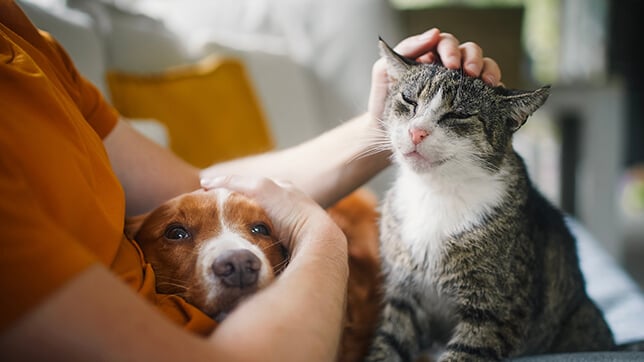3rd October 2024
Ways to give back to animals after losing your pet
Whether you’ve lost your dog, cat, or horse, it can be difficult to know how to process your grief while finding a way to remember them. If this is how you’re feeling right now, we’re so sorry for your loss.
Since many of us, here at Animal Friends, have dealt with the heartbreak of losing a beloved dog, cat, or horse, we understand what you’re going through.
Helping animals in need is a wonderful thing to do in memory of a lost loved one. So, we’re sharing some ideas as to how you could support animals in the name of your much-loved dog, cat, or horse…
Donate to a local animal rescue charity
Donating to charity in the name of your dog, cat, or horse has the potential to make a wonderful difference to the lives of animals in need. There are several ways to donate to charity in memory of your pet – for example, donating directly through their website, setting up a pet memorial, or creating a pet tribute.
Monetary donations are always needed by animal charities, though if you’re unable to donate money to support a charity, there may be items you could donate instead.
For some, donating items that once belonged to their beloved dog, cat, or horse to animals in need offers a great sense of comfort. If your loved one’s belongings are used to help animals in need, the memory of your dog, cat, or horse can live on, by making a positive difference.
Important: Any items you donate to an animal charity should be clean, undamaged, and ready to use straight away.
Here’s what you might be able to donate…
Dog charities may accept:
- Unopened dog food that hasn’t yet reached its ‘best before’ or ‘use by’ date.
- Unopened dog treats that are still in date.
- Dog toys.
- Dog grooming brushes.
- Bedding (e.g. blankets, quilts, and duvets – without feathered filling).
- Towels.
- Puppy pads.
- Food and water bowls (metal or plastic).
- Fabric collars and harnesses.
- Leads of any length.
- Dog coats.
- Training crates.
Cat charities may accept:
- Unopened cat food that hasn’t yet reached its ‘best before’ or ‘use by’ date.
- Unopened cat treats that are still in date.
- Cat toys.
- Cat grooming brushes.
- Bedding (e.g. blankets).
- Towels.
- Litter trays.
- Cat carriers.
- Fabric collars.
- Food and water bowls (metal or plastic).
Horse charities may accept:
- Tack (e.g. saddles, bridles, saddlecloths, etc.).
- Headcollars and lead ropes.
- Any type of horse rug (e.g. fly sheets, turnout rugs, stable rugs, etc.).
- Fly masks.
- Grooming kits.
- Feed buckets.
- Water buckets.
- Haynets.
Please note: Each animal charity’s policies will differ regarding the items you can and can’t donate to them, so please check their website or contact them before travelling to their centre.
If you have boxes of unopened, in date medication after sadly losing your dog, cat, or horse, some charities may be able to accept it, e.g. Worldwide Veterinary Service.
Volunteer at a local animal rescue centre
Volunteering at a local animal rescue centre is an incredible thing do in memory of a loved one you’ve lost.
Often, losing a family pet can make us feel as though there’s a huge part of our life missing, as our daily routines change drastically. For lots of people, spending time volunteering to support animals in need provides a sense of fulfilment – offering a positive direction to channel your energy towards.
By using your animal care skills and expertise to benefit rescued animals awaiting their forever homes, the memory of your dog, cat, or horse lives on through your actions.
Plus, performing an activity you were used to completing every day for your family pet could support you through the sudden transition in your routine. For instance, you could volunteer to help animals in need by walking dogs at a local shelter or mucking out stables for a local equine charity.
Foster animals awaiting their forever homes
If you’re not quite ready to welcome a new four-legged family member, your pet parenting experience and animal-friendly home could mean you’re the perfect candidate for fostering animals in need.
To find out whether you fit the requirements to become an animal foster carer, you’ll need to check your local rescue centre’s website or contact them directly.

For access to advice and support if you’re struggling to deal with the loss of your dog, cat, or horse, please visit our Pet Bereavement Hub.
